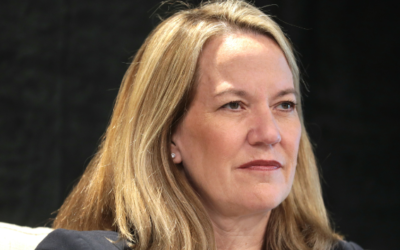By Matthew Holloway |
The United States Supreme Court ruling in Johnson v. City of Grants Pass, has settled the question of a city’s ability to arrest and fine people for sleeping and encamping in public spaces.
In the 6-3 ruling, the high court found that enforcing laws against camping on streets, sidewalks, and public lands does not constitute “cruel and unusual punishment,” and therefore survives a challenge based on the Eighth Amendment. Communities beleaguered with an entrenched homeless population living illegally on city streets, in vacant lots, and even parks will now be able to clear them and get the homeless, and frequently mentally ill and/or addicted off the streets and hopefully to the resources they need. As noted by AZFamily, the small city of Grant’s Pass, Oregon, was vindicated by the Supreme Court in its assertion that forbidding homeless encampment is not unconstitutional.
Along with Grant’s Pass, the City of Phoenix was also cleared for a new city law to take effect in two months making it illegal to camp within 500 feet of a school, childcare center, or city-owned park as previously reported by AZ Free News. According to The Center Square, Arizona Senate President Warren Petersen is quite pleased with the SCOTUS ruling. He told reporters, “This ruling is a victory in our state’s efforts to tackle the humanitarian crisis destroying lives and livelihoods within our communities on a daily basis.”
“Our children shouldn’t be forced to walk to school on streets littered with needles, feces, and trash. The individuals camping out should be discouraged from this practice through enforceable laws and be provided with the mental health or substance abuse services they need to overcome this terrible situation.”
Phoenix’s Democrat Mayor Kate Gallego said in written statement Friday, “Phoenix has continued to make meaningful progress on this issue while simultaneously navigating a web of conflicting legal opinions.” She added, “Today’s Supreme Court ruling provides the necessary clarity we need to help even more people find safe, stable shelter,” as AZFamily reported.
Independent City Councilman Kevin Robinson observed, “We want to have the flexibility (to issue citations). I think it needs to be there if it’s a critical type of situation. But the expectation is we lead with services first. We look for ways to help people.” Democrat Councilwoman Kesha Hodge Washington added, “The decision provides municipalities with an accountability tool, if and when appropriate.”
Her fellow Democrat Councilman Carlos Galindo-Elvira explained that Phoenix needs to achieve a balanced approach between law enforcement and the dignity of the homeless. “It cannot be open season on the unhoused. That’s not acceptable to me,” he said. “I worry about that everywhere in the United States.”
Although he noted, “Citations have to be an option to ensure equity and to maintain space and access to it.”
Republican Councilwoman Ann O’Brien, who led the encampment ban in the council, told the Arizona Republic that the ruling has affirmed the new ordinance but stressed that Phoenix will continue offering services to the homeless, although for those who refuse assistance, she supports enforcement.
“We want to get them back on their feet. … If we can lead with services, that’s my preference. When they say, ‘No,’ then if that means they need to be ticketed, then I would welcome them to go through the community court process,” O’Brien said.
“What’s important to remember is this isn’t just about the homeless community. It’s about all the citizens of Phoenix and quality of life issues for everyone,” she added.
The City of Phoenix issued a statement published by ABC15 saying in part, “The City of Phoenix has worked strategically over the last several years to balance court orders from two different lawsuits, community needs, and available resources to address homelessness in our community. The City will continue to lead with services and will not criminalize homelessness, while we evaluate our programs based on the court’s ruling today. The City is confident in the processes created by the Office of Homeless Solutions and supporting departments to address encampments in a dignified and compassionate manner, connecting our most vulnerable residents with services while preserving the quality of life in our neighborhoods for all residents.”
Writing for the majority of the court, Justice Neil Gorsuch reached for the work of Alexis de Tocqueville to conclude his ruling:
“Homelessness is complex. Its causes are many. So may be the public policy responses required to address it. At bottom, the question this case presents is whether the Eighth Amendment grants federal judges primary responsibility for assessing those causes and devising those responses. It does not. Almost 200 years ago, a visitor to this country remarked upon the ‘extreme skill with which the inhabitants of the United States succeed in proposing a common object to the exertions of a great many men, and in getting them voluntarily to pursue it.’ 2 A. de Tocqueville, Democracy in America 129 (H. Reeve transl. 1961).
If the multitude of amicus briefs before us proves one thing, it is that the American people are still at it. Through their voluntary associations and charities, their elected representatives and appointed officials, their police officers and mental health professionals, they display that same energy and skill today in their efforts to address the complexities of the homelessness challenge facing the most vulnerable among us.
Yes, people will disagree over which policy responses are best; they may experiment with one set of approaches only to find later another set works better; they may find certain responses more appropriate for some communities than others. But in our democracy, that is their right. Nor can a handful of federal judges begin to ‘match’ the collective wisdom the American people possess in deciding ‘how best to handle’ a pressing social question like homelessness. Robinson, 370 U. S., at 689 (White, J., dissenting).
The Constitution’s Eighth Amendment serves many important functions, but it does not authorize federal judges to wrest those rights and responsibilities from the American people and in their place dictate this Nation’s homelessness policy. The judgment below is reversed, and the case is remanded for further proceedings consistent with this opinion.”
Matthew Holloway is a senior reporter for AZ Free News. Follow him on X for his latest stories, or email tips to Matthew@azfreenews.com.








